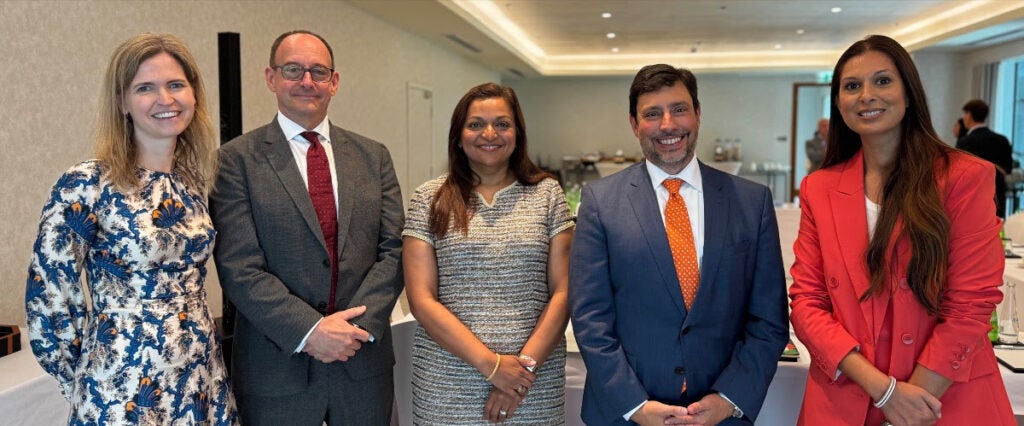
The U.S.-U.A.E. Business Council, in partnership with FGS Global, hosted a private discussion on U.S. deal clearance and potential changes to the Committee on Foreign Investment in the United States (CFIUS) process under the Trump Administration on Thursday, June 19th, 2025, at the Ritz Carlton Hotel DIFC in Dubai. The conversation featured Michael Considine, who recently concluded 16 years on the CFIUS committee and is now a Senior Advisor at FGS Global. This discussion brought together senior executives from key U.S. and U.A.E. law firms, banks, private equity firms, and technology and energy companies.
Mr. Considine outlined the U.S. Department of Treasury’s recently announced CFIUS fast-track process, which intends to streamline the CFIUS the review process for certain repeat filers and enhance efficiency in review of transactions that present lower risks. The initiative comes under President Trump’s “America First Investment Policy” outlined in Presidential Memorandum 3 issued in February, which previewed a fast-track CFIUS process that would “be based on objective standards, be able to facilitate greater investment from specified allied and partner sources.” Mr. Considine detailed what filers can expect in the near and longer-term as part of the new fast-track process.
Highlights of the discussion included:
- The creation of a new “Known Investor” portal within CFIUS, which will facilitate the collection of information on foreign investors in advance of a filing.
- How the fast track process builds on the existing “declarations” mechanism, which speeds up the total review timeline from 90 days to as little as 30 days.
- The goal of the “Known Investor” portal is to build a database of information on frequent filers, reducing the amount of information that needs to be resubmitted with each new filing, allowing foreign investors to submit their information once and use that information for subsequent filings.
- Greater efficiencies in CFIUS, usually one of the last regulatory hurdles for investors in the U.S. market, will make U.S. deal clearance more predictable in reaching intended deal closing dates.
- Many details of the new fast-track process are unknown, such as eligibility criteria, timing, or types of investors who may qualify.
- The policy directs the federal government to expedite environmental reviews for any investment over US$1 billion.
Mr. Considine provided strategies for navigating the CFIUS process complexities, including ways to minimize risk and increase the likelihood of deal approval. Additionally, he provided context on how national security concerns are shaping regulatory scrutiny in the CFIUS process. Specifically, he noted:
- Previous attempts to streamline frequent filers through the “Excepted Investor” provision in the CFIUS regulations are narrowly tailored and difficult to navigate
- The possibility of more rigorous CFIUS reviews for deals or entities connected to countries considered by CFIUS to be of concern, and the potential scrutiny of investors who have significant commercial operations in these countries
- The importance of accurately and fully identifying direct and indirect shareholders when submitting information to CFIUS
- The special attention given by CFIUS to investments which involve sensitive technology, critical infrastructure, healthcare, agriculture, energy, and raw materials
- The evolution of CFIUS as an active monitor and enforcer with broader audits and compliance reviews expected, recommending early engagement in the process, allowing for investors to proactively address risks and shape mitigation terms
For more information about the U.S.-U.A.E. Business Council’s programming and this event, please contact Caitlin Cottrell at ccottrell@usuaebusiness.org.